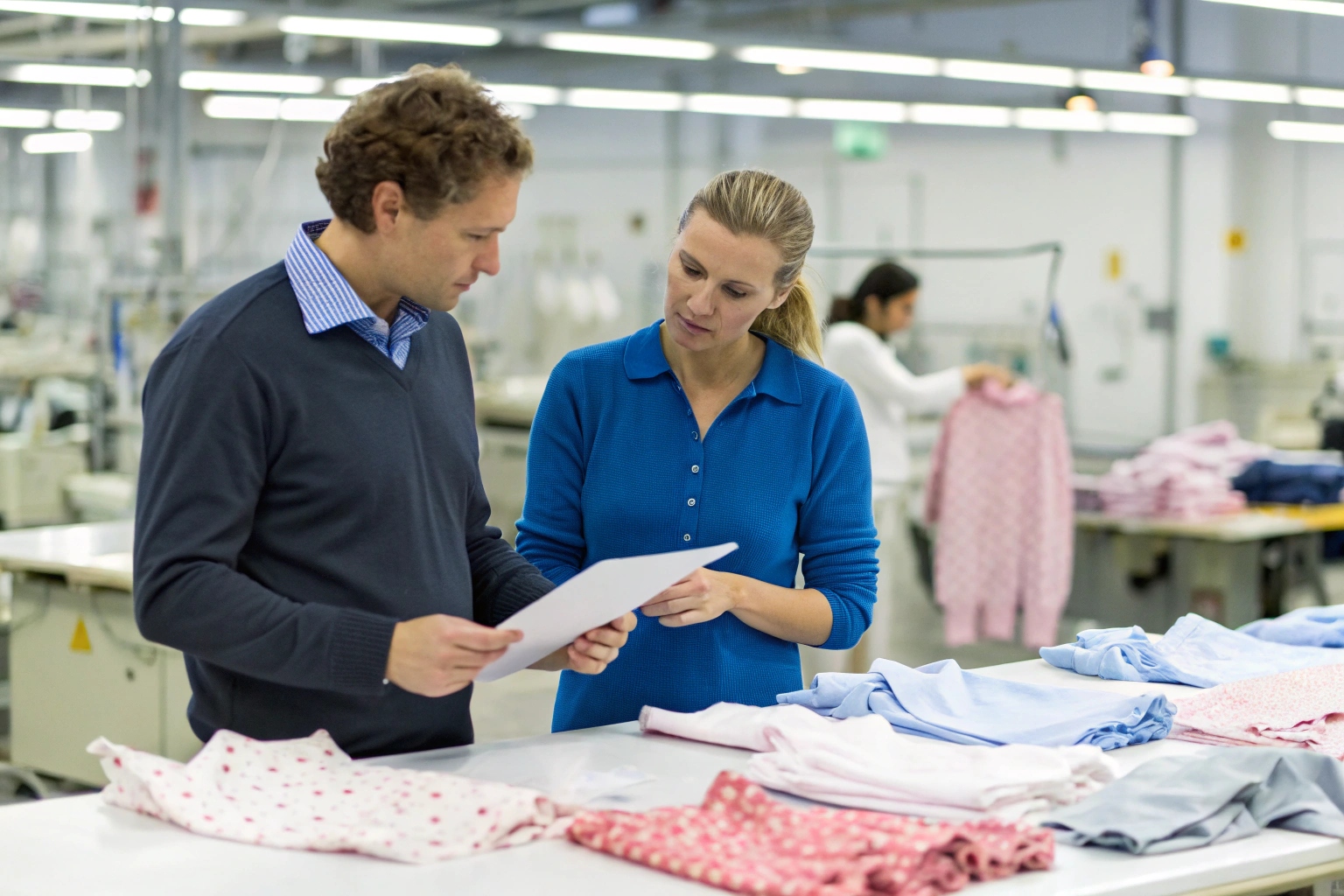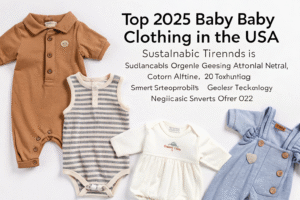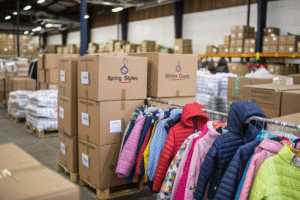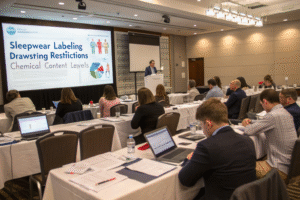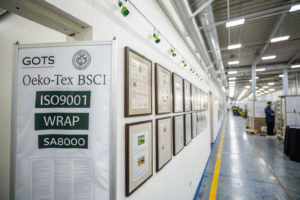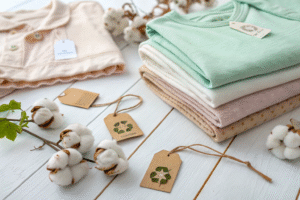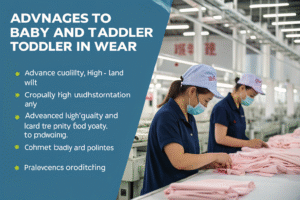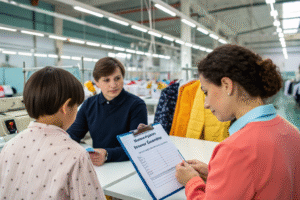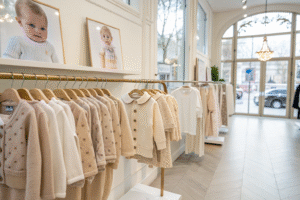The babywear market is changing fast—and so are the expectations from brands. Today’s buyers don’t just want production; they want a partner.
Baby clothing brands now look for flexible, fast, certified, and customization-ready manufacturers who can deliver quality and sustainability at scale.
In this article, I’ll share what modern babywear brands really expect from their suppliers—and how we at Fumao Clothing meet those needs every day.
Why Flexibility and Low MOQ Matter More Than Ever?
Brands today are launching faster, testing smaller, and pivoting often. Rigid factories can’t keep up—and that means lost opportunities.
Low MOQs and flexible order handling allow babywear brands to test designs, run seasonal drops, and respond to customer trends without overstock risks.
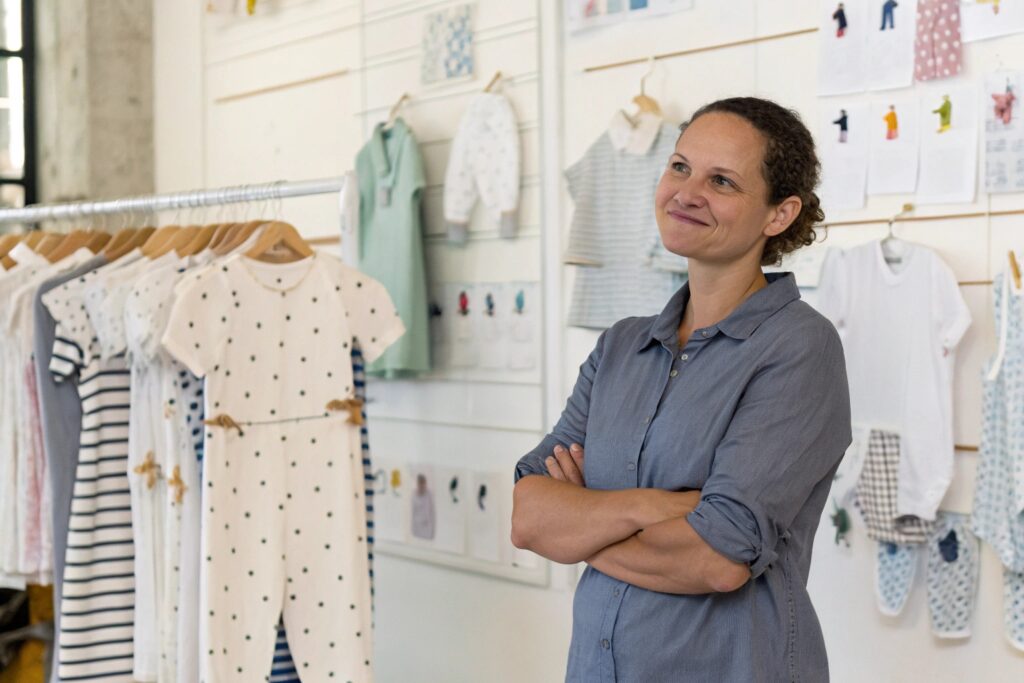
Why are baby brands moving away from large-volume, one-style manufacturing?
Modern baby brands—especially DTC startups—follow new product cycles:
- Launch with micro collections
- Test product-market fit via Instagram or TikTok
- Repeat orders based on live sales data
- Offer personalization or seasonal variants
This requires:
- Lower MOQs per SKU
- More color and size combinations
- Flexible delivery scheduling
- Support for restocks in smaller volumes
At Fumao, we often get requests like:
“Can we do 150 pcs each of 3 sizes in 2 colors?”
Yes—we do that. Our flexible MOQ model helps brands reduce risk and test the market in real-time.
How can manufacturers make low-MOQ models profitable and efficient?
It’s all about smart planning:
| Strategy | Benefit |
|---|---|
| Stocking common fabrics | Cuts lead time and setup cost |
| Shared trims across styles | Reduces MOQ per trim order |
| Semi-custom base patterns | Offers uniqueness without full redraft |
| Batch production by color | Lowers per-unit cost in printing |
We help brands plan collections that balance creativity and cost. For instance, a client used one base romper pattern in three prints—our factory produced all of them in the same workflow.
How Speed and Reliability Impact Brand Growth?
The babywear market moves fast. Missed timelines can kill a season—or worse, break trust with loyal buyers.
Brands rely on factories that deliver on time, communicate clearly, and adjust quickly to changes in demand or design.

What happens when factories delay bulk or mismanage sampling?
Here’s what we’ve seen firsthand:
| Delay Issue | Real Impact on Brand |
|---|---|
| Missed bulk deadline | Missed launch window or campaign |
| Inaccurate samples | Wasted budget on wrong production |
| Poor response time | Brand switches to another factory |
| Shipment mislabeling | Inventory errors and refund issues |
One of our current partners came to us after a 2-week delay from a previous factory ruined their “Back to School” launch. We helped them recover with a rush batch—and now we’ve worked together for three years.
What do babywear brands expect during the production process?
Here’s what clients like Ron (a U.S.-based buyer) want:
- Weekly progress updates during sampling and bulk
- QC photos or videos at each stage
- Clear delivery windows with buffer for shipping
- Fast sampling—ideally 7–10 days from tech pack to courier
- Consistent quality across sizes and colors
At Fumao, we send fit sample photos, packaging previews, and QC reports—even before clients ask. That proactive reliability builds long-term partnerships.
What Certifications Babywear Brands Expect from Factories?
Safety, ethics, and sustainability aren’t optional anymore. For babywear, certifications are must-haves—not nice-to-haves.
Babywear brands expect their manufacturers to provide safety, labor, and environmental certifications to ensure compliance in key markets.
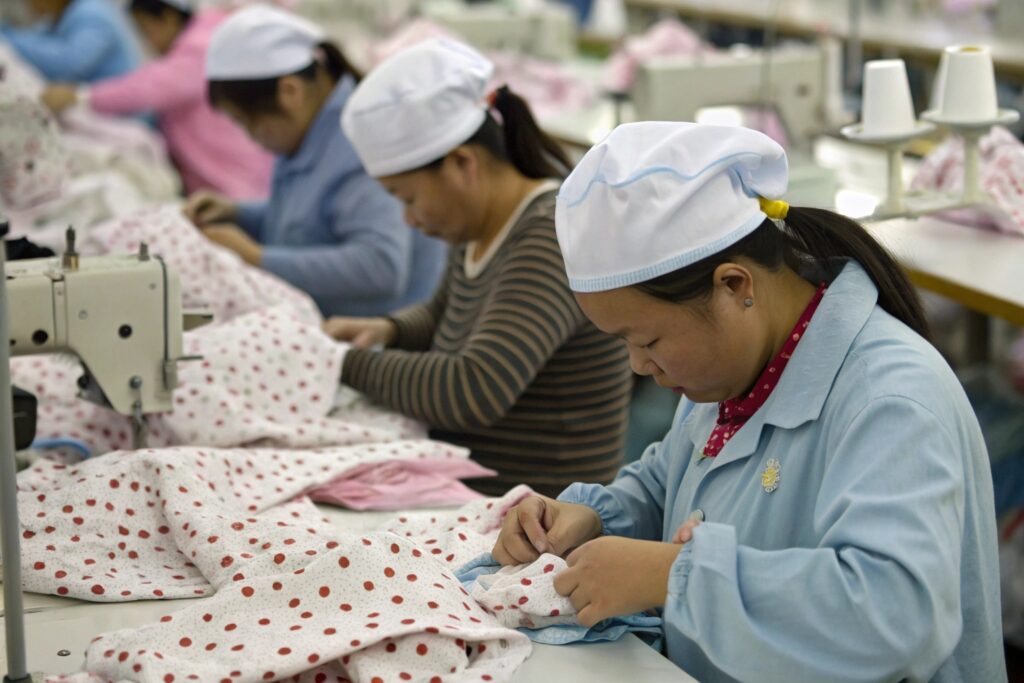
Which certifications are most commonly requested by U.S. and European babywear brands?
Here’s what most of our clients ask for:
| Certification | Purpose | Region Focus |
|---|---|---|
| OEKO-TEX® Standard 100 | Confirms fabrics are safe for babies | Global |
| GOTS (Organic Textile) | Organic fiber processing and dyeing | Europe, U.S. |
| BSCI or SEDEX | Ethical labor and working conditions | Europe |
| CPSIA (U.S.) | Product safety compliance for babywear | United States |
| COC (Chain of Custody) | Traceability in sustainable sourcing | Premium buyers |
Some brands also want factory audits or visit photos. We provide:
- Certification PDFs with expiration dates
- Fabric mill chain-of-custody references
- Audit summaries (when allowed)
- Photos of testing equipment or reports
One buyer told us:
“We chose you because you shared the OEKO-TEX for each fabric batch—not just one old certificate.”
Transparency wins.
How do certifications help brands market better?
Today’s parents are cautious buyers. Certifications let brands:
- Add “Certified Safe for Babies” tags on packaging
- Display badges on product pages (increases trust)
- Avoid regulatory risks in the U.S. or EU
- Charge a premium price for organic or ethical goods
We’ve seen buyers increase MSRP by 20–30% when using certified organic or OEKO-TEX® materials—and customers were happy to pay more.
How Manufacturers Can Support Custom and Sustainable Lines?
Customization and sustainability aren’t just trends—they’re shaping how modern brands build loyalty and long-term growth.
Manufacturers must offer fabric flexibility, design development, and low-waste processes to support eco and custom babywear lines.
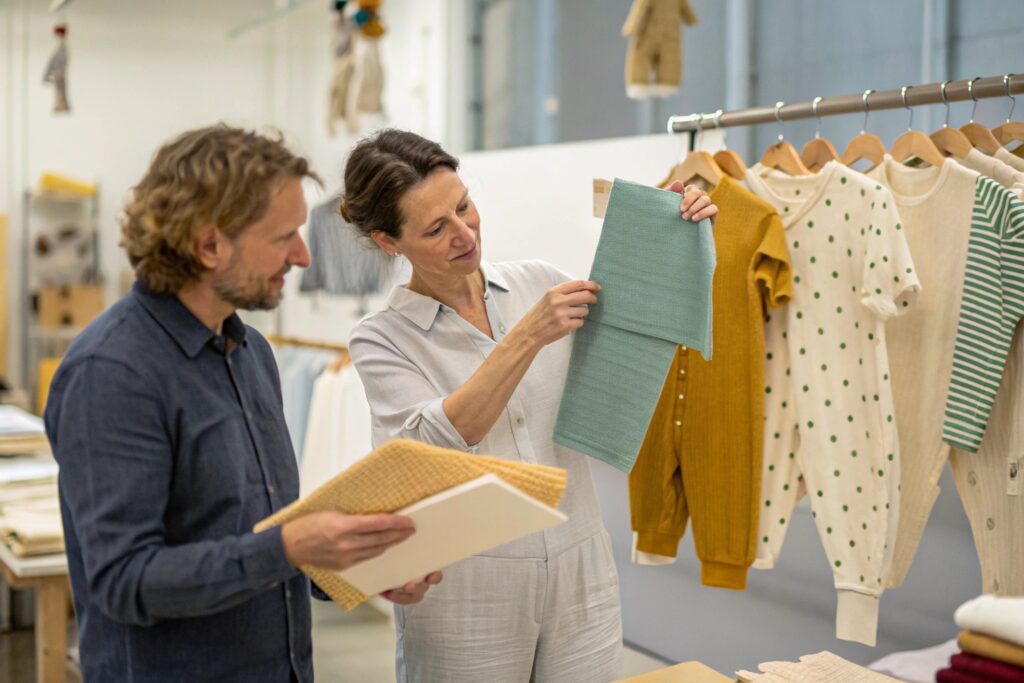
What kinds of customization do babywear brands expect?
It’s not just about names on onesies anymore. Brands want:
- Original prints (designed by or for them)
- Color matching to Pantone codes
- Custom trims—buttons, embroidery, logo tags
- Branded packaging with kraft wrap or eco bags
- Flexible sizing or seasonal designs
We help our clients by offering:
- Small-batch digital printing
- Pantone matching with pre-dye checks
- Trim sourcing in local markets for faster turnaround
- Eco-print options with water-based inks
One client launched a “Plant-Dyed Babywear” line with our help. It sold out in four days—driven by a story as much as by softness.
How can factories support sustainable product goals?
You don’t need to be a “green factory” overnight—but you do need options:
| Sustainable Feature | How Manufacturers Can Support |
|---|---|
| Organic or natural fabrics | Build direct sourcing relationships |
| Water-based or digital dyes | Partner with certified dye houses |
| Low-waste cutting systems | Implement pattern optimization software |
| Recyclable packaging | Offer kraft boxes, FSC paper, eco bags |
| Transparent sourcing | Provide traceable supply documents |
At Fumao, we offer both organic and recycled cotton, and help clients tell that story on tags and boxes. That’s how they win attention—and loyalty—from modern parents.
Conclusion
Babywear brands today don’t just want cheap production. They want flexibility, speed, certification, and creativity. If you're a factory, supporting those needs is how you stay competitive—and keep great clients.

